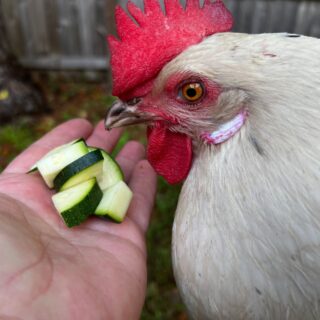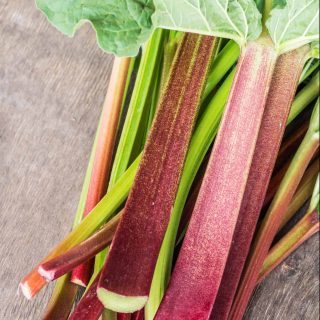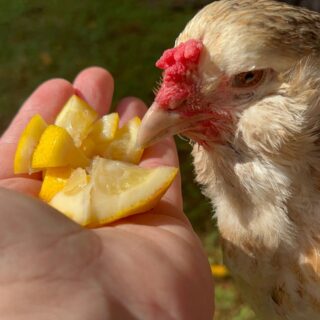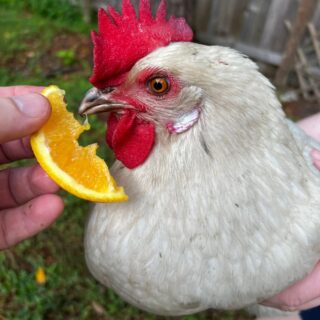Yes, chickens can eat tomatoes. They are a nutrient rich with potassium, vitamin K, Vitamin C and antioxidants just to name a few. You do need to be careful about feeding them only the actual tomato though as the other parts of the plant can be dangerous.
Keep on reading to find out what kinds of tomatoes they can eat, how to feed them and more.
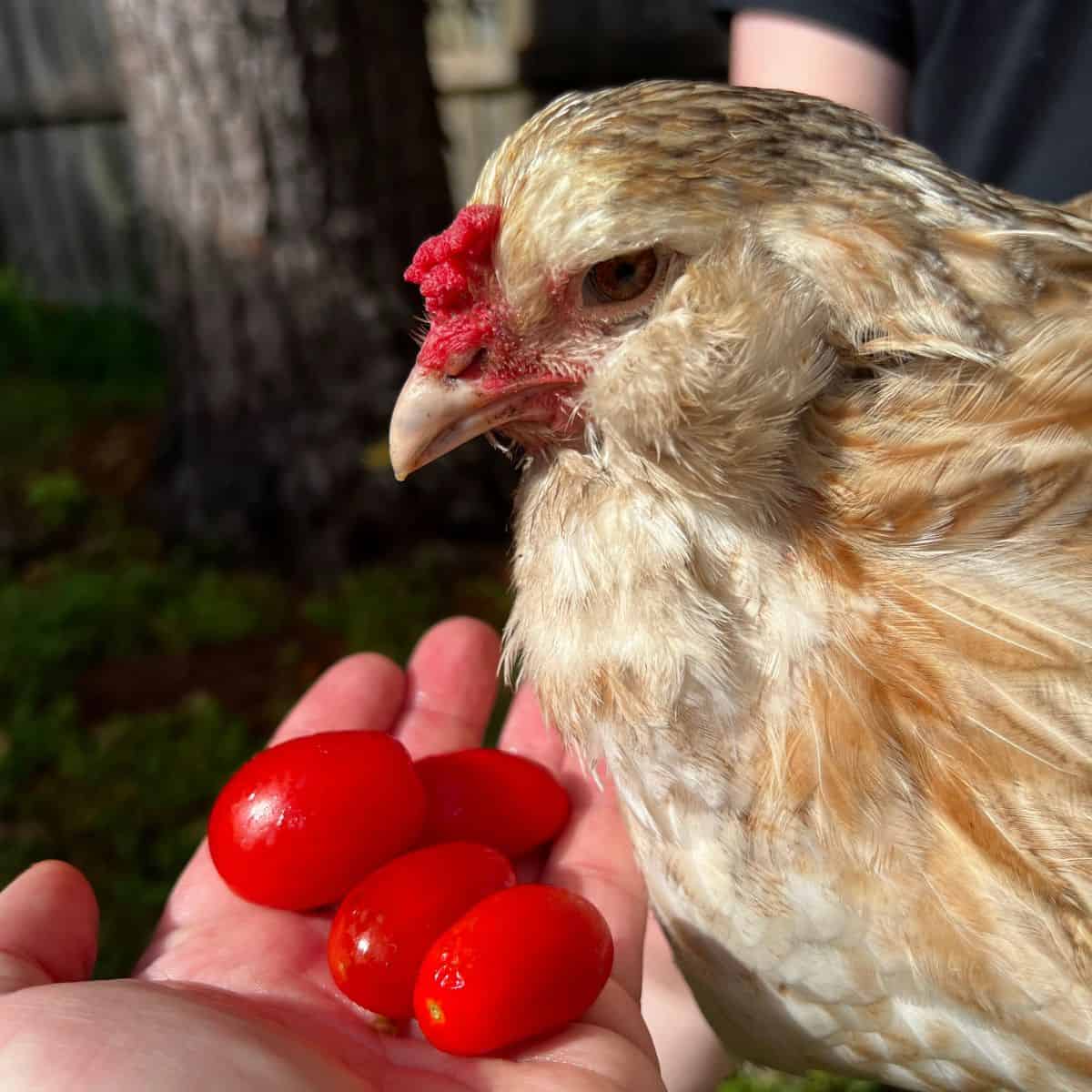
Jump to:
What Types of Tomatoes?
Chickens can eat all types of tomatoes. The nutritional analysis above is based on a handful of grape tomatoes, but it could have been cherry, Roma, beefsteak, or just a regular old normal tomato like a globe or slicing tomato.
Are Some Tomatoes Unsafe?
Most of the times, in nature, bright colors, especially red, mean "stay away!". Green is usually considered to be more benign and not risky. However, with tomatoes, the opposite is true and, in some cases, can be a fatal mistake.
If they are turning red, but still a little green they should be fine. But green, unripe tomatoes are dangerous for chickens. This is due to the solanine content.
Solanine poisoning causes a whole host of icky symptoms like GI upset, vomiting and nausea. So, you definitely don't want your chickens to have this problem.
Additionally, just in the way that chickens can eat onions and chickens can eat mangos, but only the fruit because the stalks, leaves and other parts of the tomato plant are also dangerous - the same rings true for tomatoes.
Solanine is also found in the leaves, stalks and whole tomato plant, so you don't want to feed any of that to your chickens.
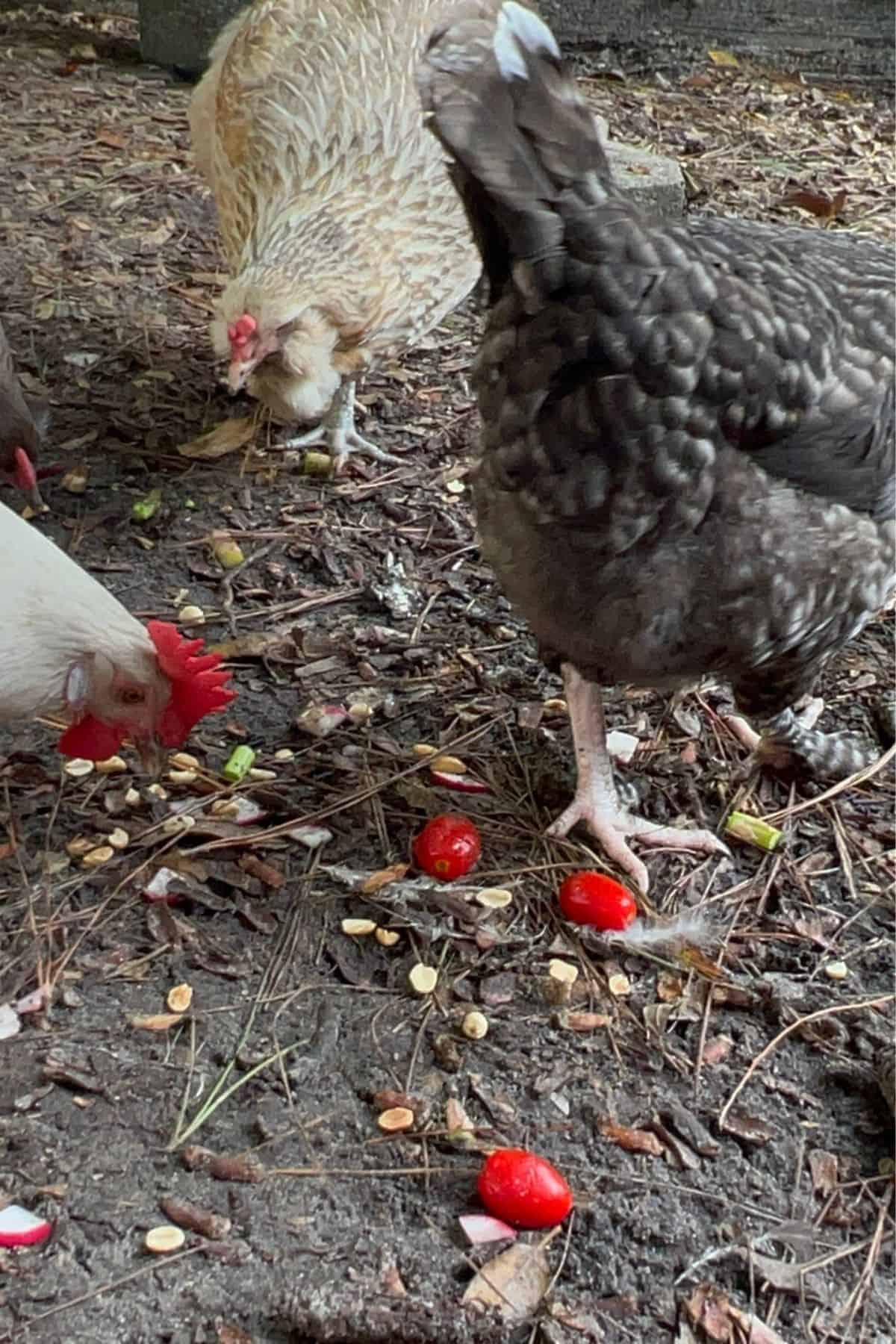
How Do I Feed My Chickens Tomatoes?
- Make sure you have ripe, red tomatoes free of leaves, stems and any part of the plant.
- Wash them well.
- You can toss them out whole to your chickens to peck, or you can slice them into chunks.
- Ensure the tomatoes are not moldy.
Additionally, don't over feed them. You should always follow the 90/10 rule when feeding chickens. All that means is 90% of their diet should be a good, high quality chicken feed balanced specifically for their nutritional needs. That leaves another 10% left for any sort of extra treats they may want.
Some other treats to try: chickens can eat cherries, chickens eat cantaloupe, chickens eat grapes, and chickens can eat bananas.
Need some help keeping your chickens health and care taken care of? Check out the Organized Chicken Keeper for an easy to follow system.
Benefits of Feeding Tomatoes
Aside from chickens loving to eat tomatoes, tomatoes are actually good for them too! Nutritious and delicious? You can't beat that. Tomatoes are chock full of many vitamins and nutrients that a chicken needs in it's regular diet.
- Vitamin C - immune response, helps with liver damage from heat stress and more.
- Vitamin K - supports bone health among other things.
- Potassium - helps with blood metabolites and immune response.
- Antioxidants - help with oxidative stress, repair free radicals and much more. Chickens can eat radishes if they need even more antioxidants.
In Conclusion
Chickens can eat raw or cooked tomatoes as long as they are ripe. They should not eat any part of the tomato plant due to solanine content.
If you need more help with taking care of your chickens, check out The Organized Chicken Keeper for a complete system for managing their health through keeping their supplies stocked and coop clean.

